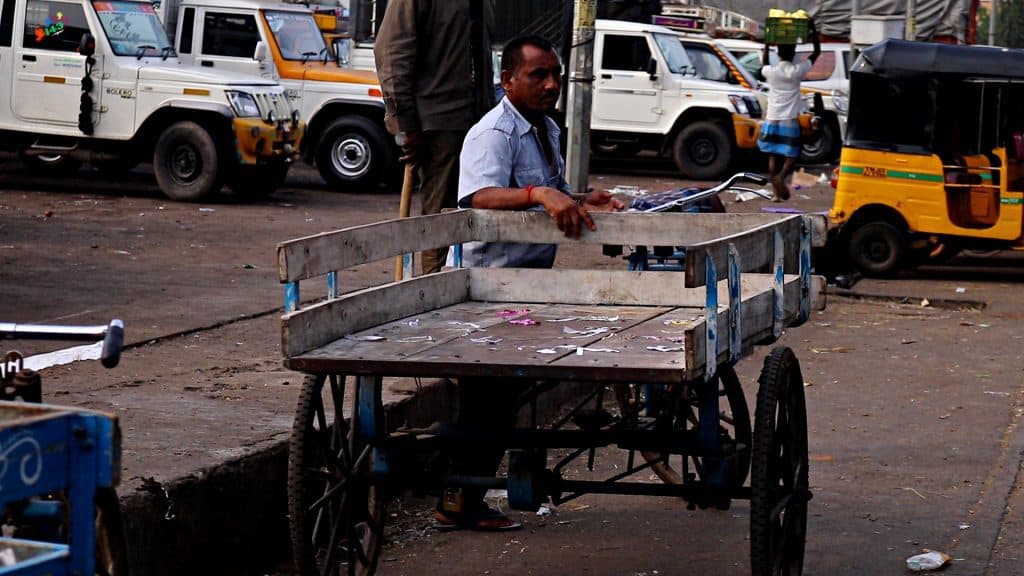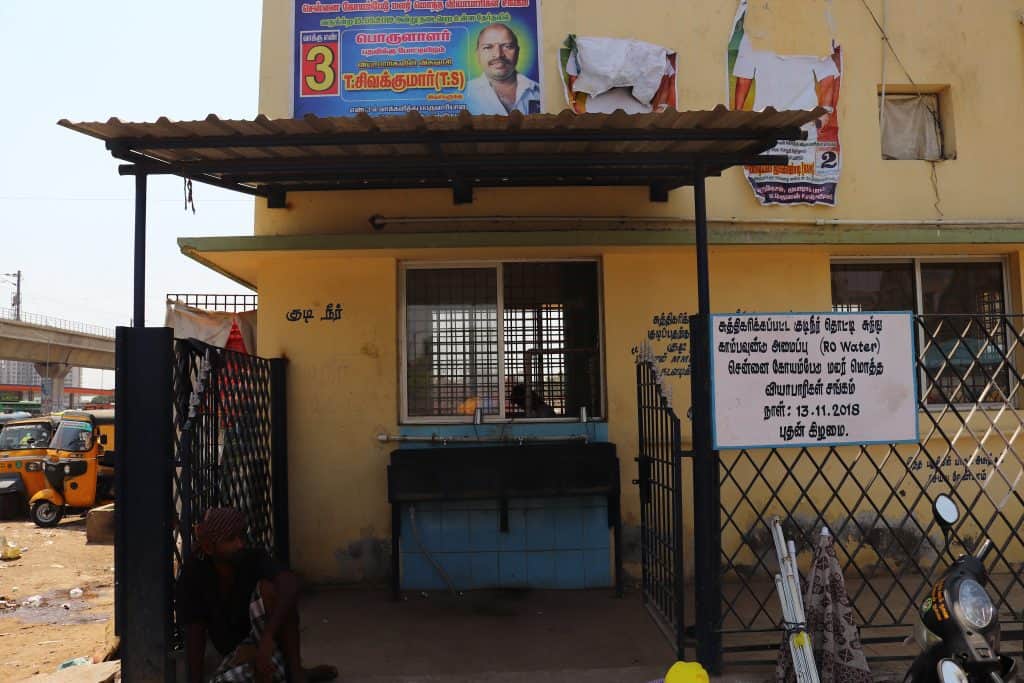A fleet of trucks carrying fruits, vegetables and flowers arrive at 1 am at the Koyambedu Market. Within a few minutes, daily wage labourers unload these commodities and carry it to the respective shops in the market. One can see customers flocking the market as early as 4 am, to get the best of the goods at a wholesale price. Business flourishes till 10 am, after which it is somewhat dull till 2 pm.
Towards the afternoon, customers from far away places such as Perungalathur reach the flower market, to strike the best deal with the wholesale vendors. By evening, the market is crowded again as citizens purchase veggies and fruits. As it gets dark, lorries and trucks arrive at the market again. This daily chain of events stands testimony to the never-ending bustle and activity at the market.
The Koyambedu market has 1889 vegetable shops, 828 fruit shops and 470 flower shops, according to Govindarajan, a Chennai Metropolitan Development Authority (CMDA) officer-in-charge of the market. Koyambedu is a second home for many daily wage labourers, vendors and fruit merchants who spend more than 12 hours at the market. For many migrant labourers, the garbage-filled lanes in the market area are the only home they’ve known in the city.
But this city landmark has been dealing with major infrastructural lapses for decades now. The planning body for the market, CMDA says it has been taking steps to improve facilities, clearing encroachments from unauthorised areas. But a visit to the market indicates that these efforts are not enough to address the woes of the market.

Vendors who encroached the pavements move their vehicles, as CMDA officials inspect the market. Pic: Sri Loganathan
While the rest of Chennai has been struggling with acute water scarcity for five months now, for vendors at Koyambedu market, it is not a seasonal issue — they literally live with it: their taps went dry 19 years ago in 2000.
“We are regular taxpayers. Chennai Corporation collects property tax (inclusive of water tax) from us, but the Metro Water department supplies no water,” said B Murugan, a fruit merchant at Koyambedu market. The three Reverse Osmosis (RO) plants in the market premises set up two years ago supply free water, but that is not an alternative, say vendors.
“We can drink water at the RO Plant and maybe bring a bottle to the shop. But we cannot get it in cans from the RO plants, can we? It is hard to leave the business and go till the RO plants every time we feel thirsty, and so we rely on private water cans. Why can’t they supply water to the shops?” asks E Parasuram, another vendor.
There are attached restrooms for shops with area of 300 sq ft, 600 sq ft, 1200 sq ft and 2400 sq ft. But more than 40 per cent of them are dysfunctional due to blocks in the sewer lines. “Sewer lines through the market are choked. Water comes back up if we use the restrooms,” said C Vijayan, a vegetable merchant, adding that people are left with no choice but to use the pay-and-use restrooms.
Another major concern here is that of poor hygiene: the lanes are always filled with vegetable waste that one has to literally walk on. The CMDA collects Rs 2 per square feet for maintenance but fails to keep the premises clean at all times. “A merchant with a 70-sq ft shop pays Rs 140 for maintenance every month. Workers clean it twice a day, but it is just not enough as vegetable waste fills the space during unloading,” said Murugan.State Express Transport Corporation (SETC) buses and Omnibuses take the market road to reach Maduravoyal bypass, resulting in traffic congestion and thwarting the movement of trucks and lorries. The situation gets worse during the holidays when more omnibuses are deployed. “Since the market road is a short cut, vehicles come this way. It is a pain to unload goods from the lorries amid such heavy traffic,” said a daily labourer.
The solution
The lack of interest from CMDA has prompted vendors to take up the reins. Many of them have become self-reliant by deploying workers for cleaning the garbage and purchasing water cans. However, larger and persistent problems such as traffic congestion and sewage blocks need to be addressed. When we asked the CMDA officer in charge, Govindaraj, he said that the vendors have been raising these issues for a while now. “We are coordinating with other departments such as traffic police and metro water to formulate a solution,” the officer said.
